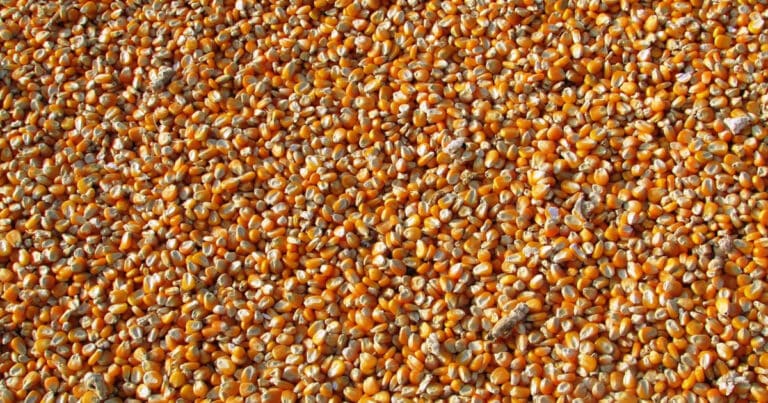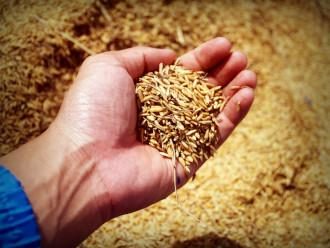By Jordan Rindler – GMO seeds are genetically modified seeds that are developed by genetically modifying the DNA of a seed. The process is also referred to as genetically engineered (GE) technology, or more generally as genetically modified organisms (GMOs). The modification of a seed’s DNA can be accomplished in many ways, including through gene editing.
The term GMO is relatively new when compared to the history of agriculture, but humans have been genetically modifying agricultural products for thousands of years through selective breeding and vertical evolution.
Babylonians Use GMO, Despite No Knowledge of Genes
When the Babylonians discovered that a certain strain of wheat produced a significantly higher and denser quality of crop which resulted in much more flour per harvest, they made sure to grow this crop again the next year. This method of choosing the best strains of the crop to grow is also genetic modification on a much more natural and random level. The farmers had no idea what a gene was or why this specific plant grew more wheat than the previous plants, but because they knew that this specific species of wheat was more fruitful than others, they kept planting it.
GMO Today, Using Genomic Theory
Today, we have a much greater understanding of genomic theory and can create a vegetable hybrid plant in a laboratory. Genetic modification has become more advanced in the past century, expanding from grains to fruit, sugar, canola, and even to animals.
Commercializing GMO Seeds
Two major global companies — Bayer (which purchased Monsanto in 2018) and DuPont Pioneer — produce 95% of genetically engineered seeds for agricultural use worldwide. These two companies have been criticized for imposing harsh restrictions on farmers using their products, including their use of legal intimidation.
The Legality of GMO Seeds
Genetically modified crops have been a controversial topic ever since their initial introduction in 1994. People who object to GMOs in food products argue that genetically modified seeds are harmful to human health because they may cause long-term damage to humans’ DNA or they may produce unnatural substances within the body. They also contend that GMO crops could lead to antibiotic resistance and environmental degradation among other things. Opponents also claim that genetically engineered plants violate farmers’ rights by introducing patents on physical seeds.
The Patenting of GMO Seeds
Prohibiting farmers from using certain seeds can set a dangerous legal precedent. One example of this occurred in a Canadian soybean farm, where Monsanto sued a small farmer for having a disproportionately high amount of specially designed “Round-Up” resistant soybean seeds which Monsanto developed and holds patents for. The judge eventually ruled in favor of Monsanto because the evidence clearly pointed to the farmer using patented seeds without paying any royalties.
The Risks and Rewards of GMO Seeds
The safety of genetically engineered seeds is hotly disputed but the impact of GMO food on human health remains unknown. According to a 2014 study published in The Annals of Applied Statistics regarding genetically modified field crops in the U.S., “while genetically modified crops have been shown to pose risks to animal welfare, wildlife and biodiversity, there is comparatively little empirical basis for assessing their effects on environmental quality”.
It could take several generations before such long-term effects are able to be seen and studied on a global level.
GMO Seeds – Yes or No?
The International Service for the Acquisition of Agri-biotech Applications writes: “A study assessing the global economic and environmental impacts of biotech crops for the first twenty-one years (1996-2016) of adoption showed that the technology has reduced pesticide spraying by 671.2 million kg and has reduced environmental footprint associated with pesticide use by 18.4%. The technology has also significantly reduced the release of greenhouse gas emissions from agriculture equivalent to removing 16.75 million cars from the roads.”
It is clear that there are positive environmental effects stemming from the use of genetically modified crops, but there are also links to much more damaging effects that are often overlooked.
Tenny Pirri-Simonian, a professor at the Webster University of Geneva, exposes a side of GMO usage that is not often looked at by the media. She writes in the book, “Sacred Seed”, “Today, particularly in poor countries, transnational business organizations dictate what sort of food will be consumed and the nutritional value of that food. These enterprises seek to maximize the production of crops for export by forcing small farmers to give up their indigenous life-giving agriculture and buy genetically modified seeds for higher yields.”
Forcing Indigenous Farmers to use GMO Seeds
While the developed world is maybe benefiting from cheaper and longer-lasting foods, are these plastic tasting products really desired? Meanwhile developing countries are having their entire way of life flipped on its head. Indigenous farmers will never be able to compete their traditional agricultural techniques, using non GMO seeds, with genetic modification. Therefore, they are forced out of their long-standing culture of working with nature, throughout the seasons, using open pollinated seeds and garden seeds and they are forced into the modern world.
Globalization and The Use of GMO Seeds
Over 300 million acres of genetically engineered crops were planted worldwide in 2013, with over 90% of them being genetically engineered to tolerate herbicides or produce an insecticide.
Gene Editing and GMO Seeds
GMO seeds can be genetically engineered in different ways. In the past, GMOs contained DNA from another organism that was inserted into the DNA of a GMO to produce certain traits and characteristics.
Today, methods include using RNAi (or double-stranded RNA) which is used to silence genes that are linked to specific traits and utilizing CRISPR technology (Clustered Regularly Inter-Spaced Palindromic Repeats).
Religious Ethics and GMO Seeds
The book of Leviticus in chapter 19 writes, “you shall not sow your field with two kinds of seed.” Eco Bible: An Ecological Commentary on Genesis and Exodus, notes that Nachmanides, a rabbi in 13th century Spain, wrote, “one who intermixes two species thereby changes and defies the act of creation, as though he thinks that God did not complete His world sufficiently. [Such a person] denies and throws into disorder the work of creation.”
The ethics of genetic engineering are complex, and Nachmanides’ warning against mixing species should serve as an impetus for an ethical evaluation of GMO seeds.
Dr. Jeremy Benstein writes: “We moderns may be long on knowledge, but we’re painfully short on wisdom. An issue in the laws of mixing species is whether there are, or should be, limits. How far is too far? These ancient, seemingly archaic, conceptions of human self-restraint as a condition for holiness are essential for us to grapple with the ethical questions of appropriate technology, human needs, the natural world and “progress.” Many environmentalists turn to pre-modern, indigenous cultures tied closely to the land for a vantage point outside our modern ethos, from which to critique it”.
A Spiritual Perspective on GMO Seeds
The book, “Sacred Seed“, “inspired by physicist and environmental leader Dr. Vandana Shiva”, offers a spiritual perspective on seeds, and relates to GMO seeds.
David Suzuki wrote, “If life is sacred, then we cannot treat other organisms as if they are cars or computers, we must act with humility, respect and love. “Sacred Seed” provides a powerful perspective to temper our unseemly rush to engineer everything within the biosphere.”
* Featured image source
Follow this link to learn more about Food Production









I appreciate the information and spiritual perspective this article provides. You quote a comment from David Suzuki (if memory serves, a Buddhist), “If life is sacred…” but isn’t this the problem, namely, that scientists do not, in general, recognize this concept or adhere to any moral obligation that stems from “life is sacred”? Science itself is regarded as “sacred” by the majority of scientists, and to stand in the way of science, is to commit heresy.